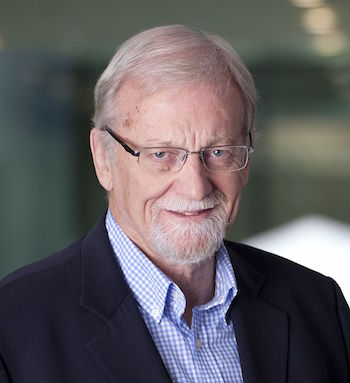The international community should put “maximum pressure” on the Cambodian government to improve the country’s human rights situation, including possible sanctions on top officials, former Australian Foreign Minister Gareth Evans said on Friday.
Speaking on the Policy Forum podcast hosted by the Asia and Pacific Policy Society, Mr. Evans—who played a key role in the political settlement that ended Cambodia’s civil war—said the international community had not done enough to pressure the government over what he said was a deteriorating situation.

“I think political responses from the rest of the world and certainly the rest of the region have been far too muted given the scale of the violations that have been going on for really a very long time now,” Mr. Evans said.
Mr. Evans charged the government with overseeing land grabs, curtailing free speech and reacting violently to perceived threats.
He also said the recent murder of political commentator Kem Ley had “all the hallmarks of a political assassination.”
“Unfortunately, there’s no unequivocal evidence that the government’s hand was in this, so it’s very difficult under the circumstances for the international community to respond specifically to that case.”
Instead, Mr. Evans advised the international community to exert “maximum pressure” on the government to ensure that upcoming elections would be free and fair.
“There may well be the case for contemplating the application of some kind of sanctions, targeting sanctions against individuals, just ways of placing overt pressure,” he said, adding that world leaders could also voice their displeasure in one-on-one meetings with government officials.
“Even the most egregious human rights violators don’t like to be named and shamed,” Mr. Evans said. “Maybe that’s a slim reed on which to hang your hopes for policy change, but it’s frankly all that we can really do.”
Though he accused the international community of cutting Prime Minister Hun Sen too much slack, he admitted that he, too, had given the premier “the benefit of the doubt” for too long.
Mr. Evans was described in 1994 as “the father of Cambodia” by Chheang Vun, a senior lawmaker from the ruling CPP, and was for years a defender of Mr. Hun Sen’s government on the international stage.
“The reason I cut Hun Sen so much slack for so long (‘trust’ is not an appropriate word) is that I worked closely and very productively with him on the Cambodian peace plan process from 1989 to 1993—which did deliver peace/ return of refugees/foundations for future stability—no mean achievement after horrors of genocide and protracted civil war,” he wrote in an email earlier this month.
In 2014, however, Mr. Evans penned an opinion piece through the Australian newspaper syndication network Policy Syndicate saying Mr. Hun Sen’s government had been “getting away with murder.”
“It is time for Cambodia’s political leaders to be named, shamed, investigated, and sanctioned by the international community,” he wrote at the time.
Council of Ministers spokesman Phay Siphan described the threat of sanctions as “uncivilized” and rejected Mr. Evans’ characterization of the country’s human rights record.
“If you compare Cambodia to other states in Asean, we are better,” Mr. Siphan said.
He predicted that sanctions would not accomplish Mr. Evans’ goal of squeezing the government.
“We have experienced the sanctions before already,” Mr. Siphan said. “The government is still around.”



